The Academy Awards, commonly known as the Oscars, are awards for artistic and technical merit in the film industry. They are presented annually by the Academy of Motion Picture Arts and Sciences (AMPAS) in the United States in recognition of excellence in cinematic achievements as assessed by the Academy's voting membership. The Oscars are widely considered to be the most prestigious awards in the film industry.

Gladys Louise Smith, known professionally as Mary Pickford, was a Canadian-American film actress and producer. A pioneer in the American film industry with a Hollywood career that spanned five decades, Pickford was one of the most popular actresses of the silent film era. Beginning her film career in 1909, by 1916 Pickford became Hollywood's first millionaire, and at the height of her career had complete creative control of her films and was one of the most recognizable women in the world. Due to her popularity, unprecedented international fame, and success as an actress and businesswoman, she was known as the "Queen of the Movies". She was a significant figure in the development of film acting and is credited with having defined the ingénue type in cinema, a persona that also earned her the nickname "America's Sweetheart".

William Bradley Pitt is an American actor and film producer. He is the recipient of various accolades, including two Academy Awards, two British Academy Film Awards, two Golden Globe Awards, and a Primetime Emmy Award. One of the most influential celebrities, Pitt appeared on Forbes' annual Celebrity 100 list from 2006 to 2008, and the Time 100 list in 2007.

Henry Jaynes Fonda was an American actor whose career spanned five decades on Broadway and in Hollywood. On screen and stage, he often portrayed characters who embodied an everyman image.

King: A Filmed Record... Montgomery to Memphis is a 1970 American documentary film biography of Martin Luther King Jr. and his creation and leadership of the nonviolent campaign for civil rights and social and economic justice in the Civil Rights Movement.

The Adventures of Buckaroo Banzai Across the 8th Dimension, often shortened to Buckaroo Banzai, is a 1984 American adventure science fiction comedy film produced and directed by W. D. Richter and written by Earl Mac Rauch. It stars Peter Weller in the title role, with Ellen Barkin, John Lithgow, Jeff Goldblum, and Christopher Lloyd. The supporting cast includes Lewis Smith, Rosalind Cash, Clancy Brown, Pepe Serna, Robert Ito, Vincent Schiavelli, Dan Hedaya, Jonathan Banks, John Ashton, Carl Lumbly and Ronald Lacey.
3D films are motion pictures made to give an illusion of three-dimensional solidity, usually with the help of special glasses worn by viewers. They have existed in some form since 1915, but had been largely relegated to a niche in the motion picture industry because of the costly hardware and processes required to produce and display a 3D film, and the lack of a standardized format for all segments of the entertainment business. Nonetheless, 3D films were prominently featured in the 1950s in American cinema, and later experienced a worldwide resurgence in the 1980s and 1990s driven by IMAX high-end theaters and Disney-themed venues. 3D films became increasingly successful throughout the 2000s, peaking with the success of 3D presentations of Avatar in December 2009, after which 3D films again decreased in popularity. Certain directors have also taken more experimental approaches to 3D filmmaking, most notably celebrated auteur Jean-Luc Godard in his film Goodbye to Language.

James Edward Franco is an American actor and filmmaker. He has starred in numerous films, including Sam Raimi's Spider-Man trilogy (2002–2007), Milk (2008), Eat Pray Love (2010), Rise of the Planet of the Apes (2011), Spring Breakers (2012), and Oz the Great and Powerful (2013). He has collaborated with fellow actor Seth Rogen on multiple projects, including Pineapple Express (2008), This Is the End (2013), Sausage Party (2016), and The Disaster Artist (2017), for which he won a Golden Globe Award for Best Actor. Franco's performance in 127 Hours (2010) earned a Best Actor nomination at the 83rd Academy Awards.
The 12th Academy Awards ceremony, held on February 29, 1940, by the Academy of Motion Picture Arts and Sciences (AMPAS), honored the best in film for 1939 at a banquet in the Coconut Grove at The Ambassador Hotel in Los Angeles. It was hosted by Bob Hope, in his first of nineteen turns as host.
The 8th Academy Awards to honour films released during 1935 were held on March 5, 1936, at the Biltmore Hotel in Los Angeles, California and hosted by AMPAS president Frank Capra. This was the first year in which the awards were called "Oscars".
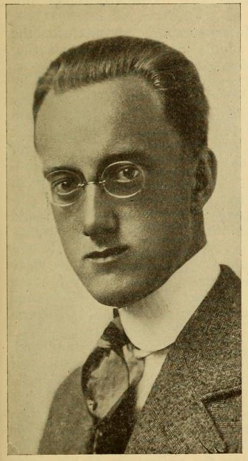
Peter Schmidt, Americanized to Pete Smith, was a film producer based in Hollywood, California. He is best known for the Pete Smith Specialties, a long-running series of general-interest short films, ranging from human-interest stories to sports subjects. Best remembered are the comedies, exaggerating common pet peeves and household problems, with Smith offering pointed commentary in his distinctive, nasal tenor.

How to Sleep is a short comedy film written by and starring humorist Robert Benchley. Filmed and released by MGM in 1935, it features Benchley as a narrator as well as film subject, discussing four parts of sleep—causes, methods, avoiding sleep, and waking up.
Kenneth Casey Robinson was an American producer and director of mostly B movies and a screenwriter responsible for some of Bette Davis' most revered films. Film critic Richard Corliss once described him as "the master of the art – or craft – of adaptation."
Declaration of Independence is a 1938 American short drama film directed by Crane Wilbur. It won an Academy Award at the 11th Academy Awards in 1939 for Best Short Subject (Two-Reel), and has been credited as being one of the few films relating to the American Revolution to win this award.
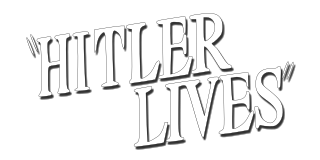
Hitler Lives is a 1945 American short documentary film directed by Don Siegel, who was uncredited. The film won an Oscar at the 18th Academy Awards in 1946 for Documentary Short Subject. The film's copyright was renewed.
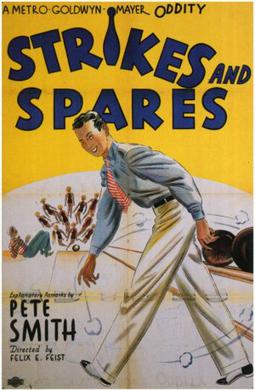
Strikes and Spares is a 1934 American short sports film directed by Felix E. Feist and starring Pete Smith and Andy Varipapa. In 1934, it was nominated for an Academy Award for Best Short Subject (Novelty) at the 7th Academy Awards.
Oh, My Nerves is a 1935 American short comedy film directed by Del Lord. It was nominated for an Academy Award at the 8th Academy Awards, held in March 1936, for Best Short Subject (Comedy). The Academy Film Archive preserved Oh, My Nerves in 2012.

La Fiesta de Santa Barbara is a 1935 American comedy short film directed by Louis Lewyn. It was nominated for an Academy Award at the 9th Academy Awards in 1936 for Best Short Subject (Color). It features a 13-year-old Judy Garland singing "La Cucaracha" with her two sisters.
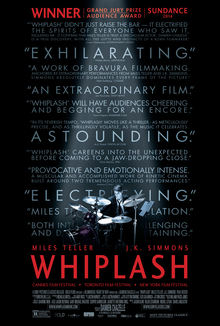
Whiplash is a 2014 American psychological drama film written and directed by Damien Chazelle, starring Miles Teller, J. K. Simmons, Paul Reiser, and Melissa Benoist. It focuses on an ambitious music student and aspiring jazz drummer (Teller), who is pushed to his limit by his abusive instructor (Simmons) at the fictional Shaffer Conservatory in New York City.
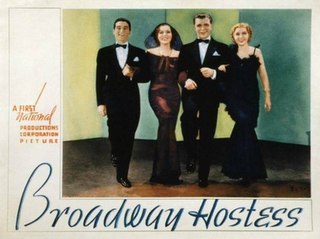
Broadway Hostess is a 1935 American romantic comedy musical film directed by Frank McDonald and starring Wini Shaw, Genevieve Tobin and Lyle Talbot. The film was nominated at the 1935 Academy Awards for the short lived Best Dance Direction category. For which Bobby Connolly was nominated for, along with the film Go into Your Dance.













